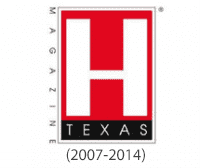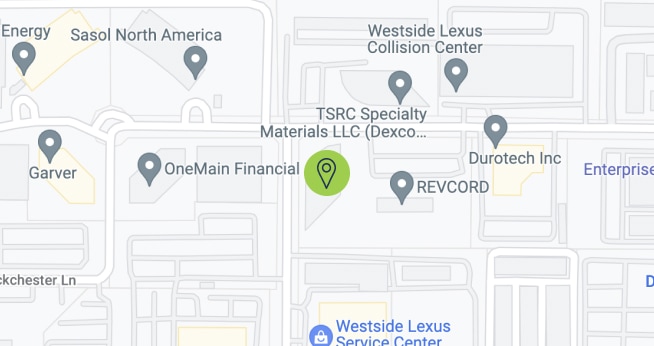Texas Insurance Company Claims Lawyer

Suffering injuries in a traffic accident can change your life. The physical pain, emotional trauma, and financial turmoil can feel overwhelming. If someone else caused your accident, you have a right to seek fair compensation for the losses you have sustained. However, dealing with an insurance company adds an unwelcome layer of stress and complication to an already challenging situation. Working with a Texas insurance claims attorney can allow you to focus on healing while a dedicated legal professional handles the claims process.
The experienced Texas insurance company claims lawyers at Fleming Law understand the frustration you may be facing in the aftermath of a car accident. For over 30 years, our team has helped injured Texans secure the compensation they deserve. Contact us today for a free initial consultation to learn more about how we can help you, too.
What Types of Insurance Claims Cases Do We Handle?
Many of the terms surrounding different types of automobile insurance in Texas can be confusing, especially when you are trying to recover from an injury. The skilled professionals at Fleming Law have experience handling all types of auto insurance claims, including:
- Liability insurance claims
- Uninsured/underinsured motorist claims
- Personal injury protection claims
- Bad faith insurance claims
Understanding each of these forms of insurance can help you know what to expect as you begin the claims process.
What Car Insurance Coverage Is Required in Texas?
Texas requires all registered vehicle owners to carry liability insurance. If the insured person causes an accident, their liability insurance will cover expenses relating to another person’s accident-related losses. The minimum amounts Texas mandates for liability insurance are:
- $30,000 per injured person per accident
- $60,000 in total injury protection per accident
- $25,000 in property damage per accident
While these are the minimum amounts, they often aren’t enough to cover the expenses resulting from a major car accident. When someone suffers a severe injury, hospital bills can quickly surpass $30,000 due to expenses such as:
- Ambulance rides
- Emergency room treatment
- Scans such as MRIs, CTs, and X-rays
- Doctor’s visits
- Surgical procedures
- Physical and occupational therapy
- Assistive devices
- Prescription drugs
- Ongoing medical assistance
Because of this, many motorists choose to purchase policies with higher coverage.
Types of Texas Car Accident Insurance Coverage
If you are involved in a car accident in the Houston area, it is important to understand the types of insurance policies that cover car accident claims for both the driver that caused the accident as well as the driver and passengers of the other car.
In Texas, the law requires that drivers of cars maintain financial responsibility to cover any damages they cause in a car accident.
Most people comply with this law by buying insurance. They purchase insurance policies that cover damage they cause to other vehicles, liability insurance as well as insurance to repair their own car if they are at fault, collision insurance coverage.
Additional coverage is available to protect the policy-holder such as:
- Uninsured/Underinsured Coverage (UM/UIM) and
- Personal Injury Protection (PIP).
Liability Insurance for Car Accidents
Liability insurance is meant to cover the damage to another person or their vehicle if you are the one at fault in a car accident. The minimum coverage amounts required by Texas law for a car accident are:
- $30,000 for each person injured in the accident;
- $60,000 total for people injured; and
- $25,000 for property damage per accident
These minimum coverage amounts are often insufficient to pay for all of the damages in a car wreck.
For instance, if one person is severely hurt in a crash in Houston, their medical expenses alone could exceed $30,000 and with personal injury Auto Insurance Policy damages such as pain and suffering or disfigurement, their total claim could easily be in the hundreds of thousands of dollars.
In this circumstance, the insurance company is only required to pay the amount of the policy and their policy-holder is liable for the remaining damages if the case does not settle.
Likewise, if there are multiple people injured in the wreck, the total medical expenses and personal injury damages could easily exceed $60,000 leaving the policy-holder at risk of financial loss.
Similarly, most cars today cost more that $25,000 and if a driver with a minimum policy totals a Mercedes Benz or other expensive late-model car, the property damages could well be over $25,000 leaving insufficient amounts to pay the repairs or replacement value.
The liability carrier should pay the following items of damage to car accident victims:
- Property damage or compensation for total loss of the vehicle;
- Rental car expenses;
- All hospital and doctor bills – both for past and future medical care;
- Any lost wages incurred due to the car wreck;
- Pain & suffering damages;
- Disfigurement damages.
Car Accident Collision Insurance
Collision insurance protects the driver from damage they cause to their own vehicle in an accident. It covers the cost of repairing or replacing the car after an accident. If the car is totaled, you will only receive the actual cash value as opposed to what you owe on it.
Unfortunately, especially with newer cars, people often owe more to the bank than what the car is worth. This can cause a problem when the car is totaled in a wreck – whether by the owner or another driver – when the insurance will only pay the amount that the car is worth rather than what the bank is owed or what it takes to buy a new car.
Uninsured/Underinsured Motorist Coverage
Uninsured/underinsured (UM/UIM) coverage is optional insurance that can compensate you for accident-related losses if the other driver’s vehicle is not insured or if the insurance is insufficient. This type of insurance policy can also be helpful if you are involved in a hit-and-run accident and the police cannot find the at-fault driver. While Texas law does not require vehicle owners to carry UM/UIM coverage, having it in place can offer peace of mind for many motorists.
Personal Injury Protection (PIP)
Personal injury protection (PIP) insurance must be offered along with an auto insurance policy. If you don’t want it, you must refuse it in writing. PIP can cover medical expenses for any injuries you and your passengers sustain in a car accident, regardless of who was at fault.
The limit for most PIP policies in Texas is $2,500 per person. However, many contracts include higher coverage amounts. Along with UM/UIM coverage, PIP can provide limited protection if you suffer injuries in a hit-and-run crash.
Negotiating with Insurers – Frequent Asked Questions
Do I Have to Accept an Insurance Company’s Initial Settlement Offer?
You never have to accept an insurance company’s first offer. Insurance companies are more interested in protecting their profit margins than ensuring you receive compensation for the care you need. Even if the at-fault party has a high-limit insurance policy, their insurance adjuster will work aggressively to undervalue your claim.
One of their favorite tactics is to offer an early lowball settlement before the injured person understands how much their claim is truly worth. If an insurer tries to catch you off guard with this tactic, politely tell them that you will speak to your attorney before you accept any settlement. This will send a clear message to them that they should take your case seriously.
After you consult with your Texas insurance claims attorney, they will investigate the accident and calculate the value of your losses. Your lawyer will then begin negotiations with the insurer and fight for the maximum compensation you deserve. If the insurance company refuses to offer you a fair settlement that will cover the full extent of your losses, your attorney can file a lawsuit so you can seek justice before a judge and jury.
Am I Required to Give the Insurance Company a Recorded Statement?
Insurers often tell injury victims that they must provide a recorded statement before their claim can be processed. However, this is another tactic to try to undervalue your insurance claim. They know they can use anything you say against you, even if you think you have not provided any information that could put the blame on you.
If the insurance adjuster asks you to give a recorded statement, direct them to your attorney. Your legal representative will know how to handle communications with the insurer without inadvertently harming your case.
Contact a Texas Insurance Company Claims Lawyer
Insurance coverage may seem simple: you file an injury claim and receive compensation. However, the reality is usually far more complicated. Many motorists who deal with insurance companies experience unbearable frustration when they are simply trying to pay their medical bills, replace lost income, and deal with the physical and emotional suffering they have experienced since the accident. If another driver caused the accident that led to your injuries, you should not have to shoulder these burdens yourself.
The experienced Texas insurance claims attorneys at Fleming Law have witnessed many individuals going through these challenges. We believe it shouldn’t have to be this complicated for you. Our attorneys offer relief from the frustrating experience of battling with insurance companies. Our extensive experience, skills, and reputation make us tough negotiators – and we are ready to take your case to court if negotiations fail.
Contact our offices today for a free consultation to learn more about how we can help you with your Texas insurance claim.
Please use this page as a starting point for many insurance-related matters. Fleming Law stands ready to represent you in a number of these insurance cases.
Insurance FAQ’s
- Car Accident Claims With GEICO Insurance
- Tips For Filing Accident Claims With Fred Loya Insurance
- State Farm Car Accident Claims
- Settle A Car Accident Claim In Texas
- How To File USAA Insurance Claims
- How to file a Claim with Travelers Insurance
- How to File a Claim with Safeco Insurance
- How to File a Claim with Mercury Insurance
- Filing a Claim with TML Intergovernmental Insurance
- Filing a Claim with Empower Insurance Group
- Filing A Car Accident Claim With Allstate
- Claims with AAA Insurance
- Accident Claims with Texas Farm Bureau
- ACCC Insurance Claims & Reviews
- What Is PIP?
- Types of Insurance Coverage












